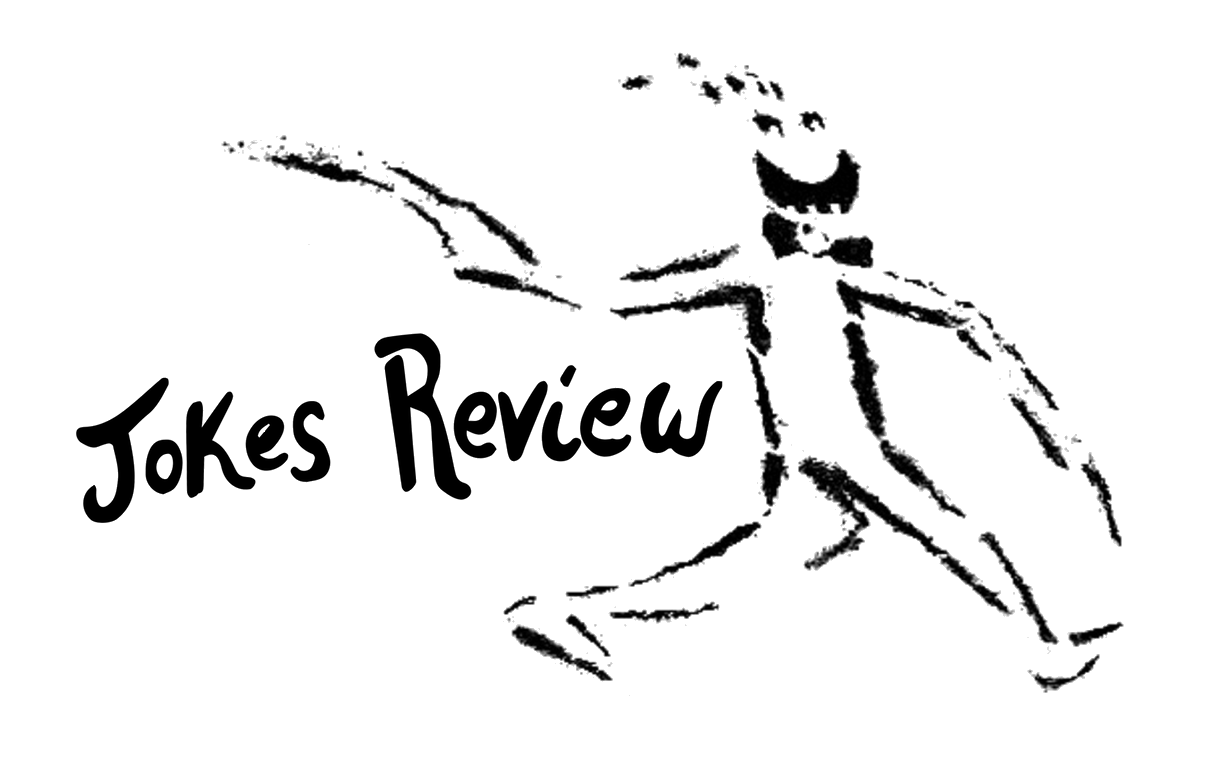Book Review: A Nihilist Walks Into a Bar by Brianna Ferguson
by Peter Clarke
If you take one look at Jokes Review, you know that we don’t actually publish jokes. In fact, we’re more than happy to do without humor unless it’s unmistakably ironic, meta, and/or actually funny. Still, every submission period, we get at least a few people submitting grade-school level knock-knock/yo’ mama/what-do-you-call-it-when-type one-liners.
Someday, just to make a point, we may actually publish these submissions. But then we’d likely have to shut down operations out of embarrassment.
Brianna Ferguson gets it. Our most frequent contributor, she’s published four stories, one poetry collection, and an author interview with us. Totally in keeping with our own mystique of pretending to publish jokes while really publishing high-brow literature, she now has a book out from Mansfield Press titled, A Nihilist Walks Into a Bar.
I really, really hope someone picks up her book thinking it’s a collection of nihilist-themed jokes. And I hope they’re utterly crushed to find, instead…poetry.
Now, the funny thing about that—and about all of this—is that (and I’m sorry to spoil the secret here, Brianna) her book really is a collection of jokes. It’s just that—since it’s poetry, literature—they’re more ironic, subtle, and challenging than your one-liner style ha-ha joke jokes.
While reading Brianna’s book, I couldn’t help myself and I looked up nihilist jokes on Google. I’d never heard of such a thing, but sure enough:
“I used to hate nihilist humor…but nothing is funny to me now.”
“Introducing the nihilist dating agency…for people who have nothing in common.”
“My nihilist best friend has poor self-esteem…he just doesn’t believe in himself.”
“There’s very little demand for nihilist merchandise…I guess it’s a Nietzsche market.”
And of course:
“A nihilist walks into a bar…” [full stop]
These are fine. Maybe you even chuckled a teeny-tiny bit. But chances are you weren’t devastated, brought to tears or hysterics, or otherwise impacted by these jokes. To get that effect, you’ve got to read fully fleshed-out, fully humanized renditions of these one-liners—which are the poems in Brianna’s collection.
True to nihilism, the collection has a fairly bleak theme, something like: The struggle against overindulgence and sloth in a world where nothing matters, but you still have regrets for your failures, even though, again, everything is futile.
Despite the bleakness, the text is full of humor, irony, complex characters, and lively descriptions. Many of the poems have a strong sense of place, to the point where I practically feel like I’ve visited the small Canadian town where many of the poems are set. Not just visited, but lost my religion, moved into a trailer park, drank too much beer, squandered too many afternoons at the bowling alley, held any number of unsatisfying, underpaid jobs…
These are the stories Brianna brings to life in her poems. Reading them, you’re immediately present with her. It’s hard not to draw a comparison to the feeling you get from reading Bukowski. You just sat down on the couch to read some of his poems for ten minutes, but, after setting the book aside, you swear you just spent all afternoon at the horse races in LA.
In my mind, this is the highest compliment that can be given to a collection of poetry. It’s the one thing that separates a one-liner joke (or, worse, a stuffy, longwinded poem) from a true work of literature.
For more about Brianna, visit BriannaFerguson.com and follow her on Twitter @brianna_eff.









